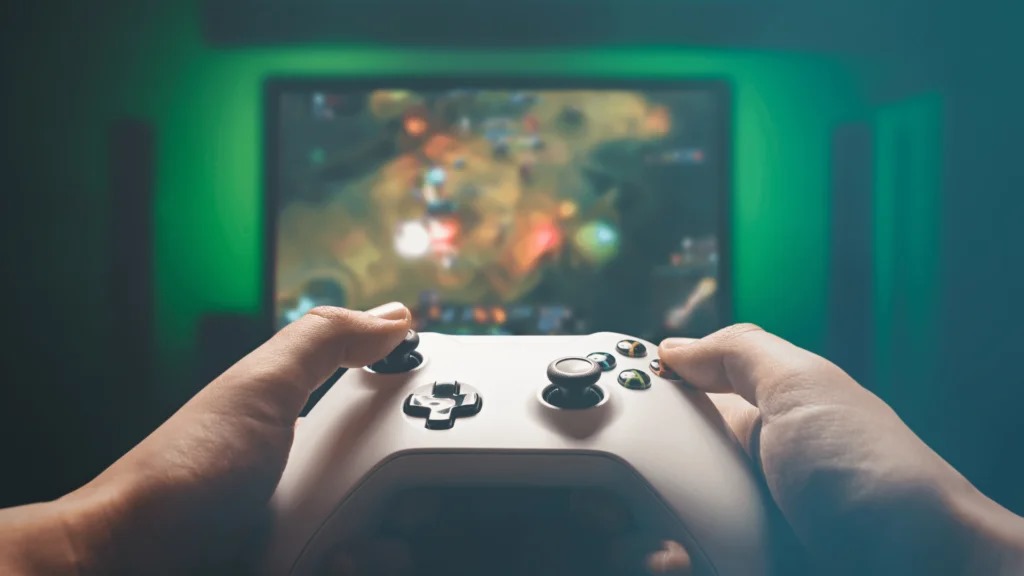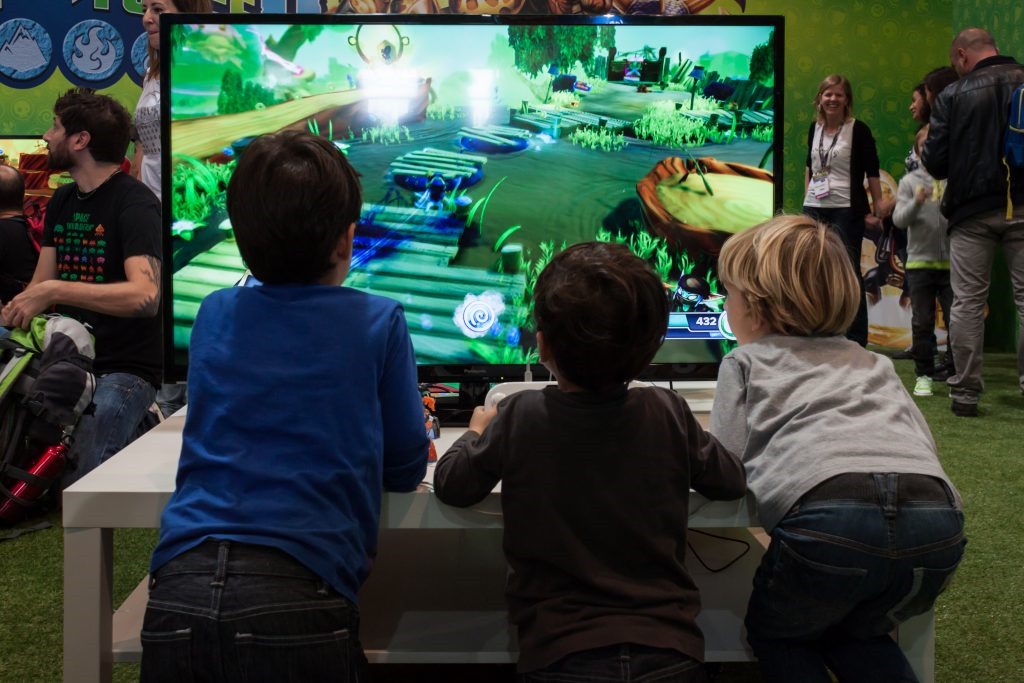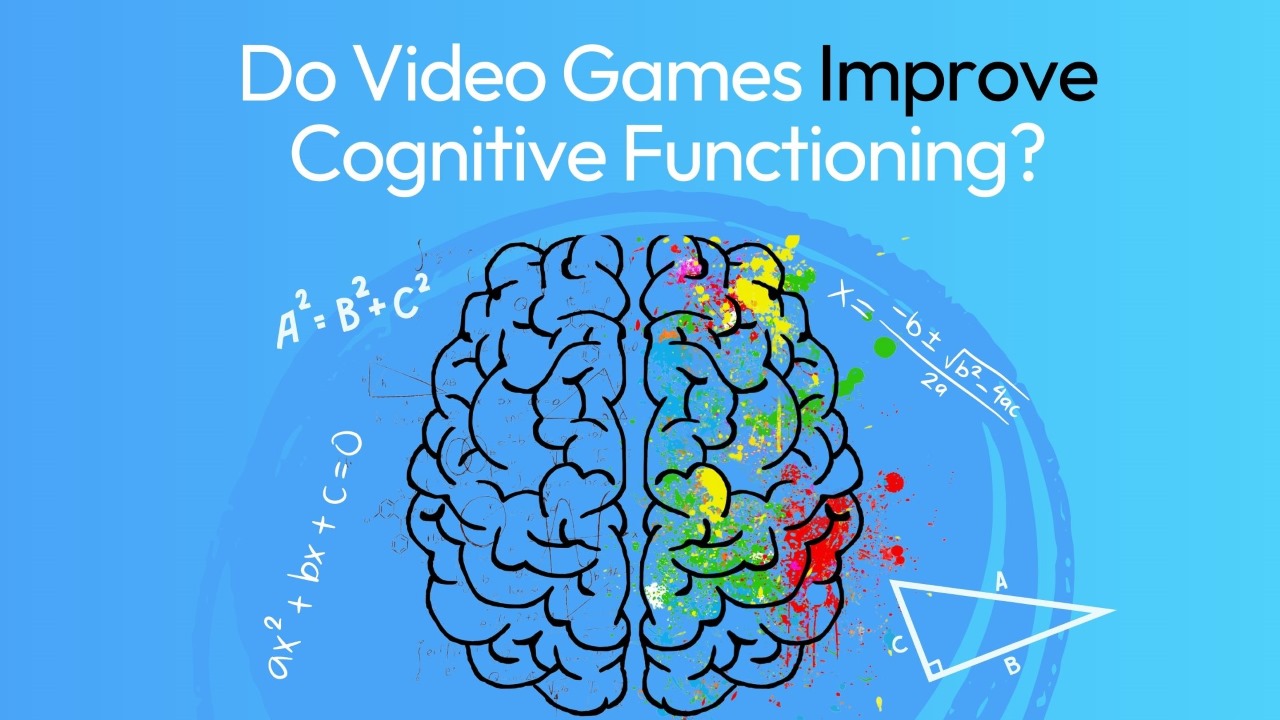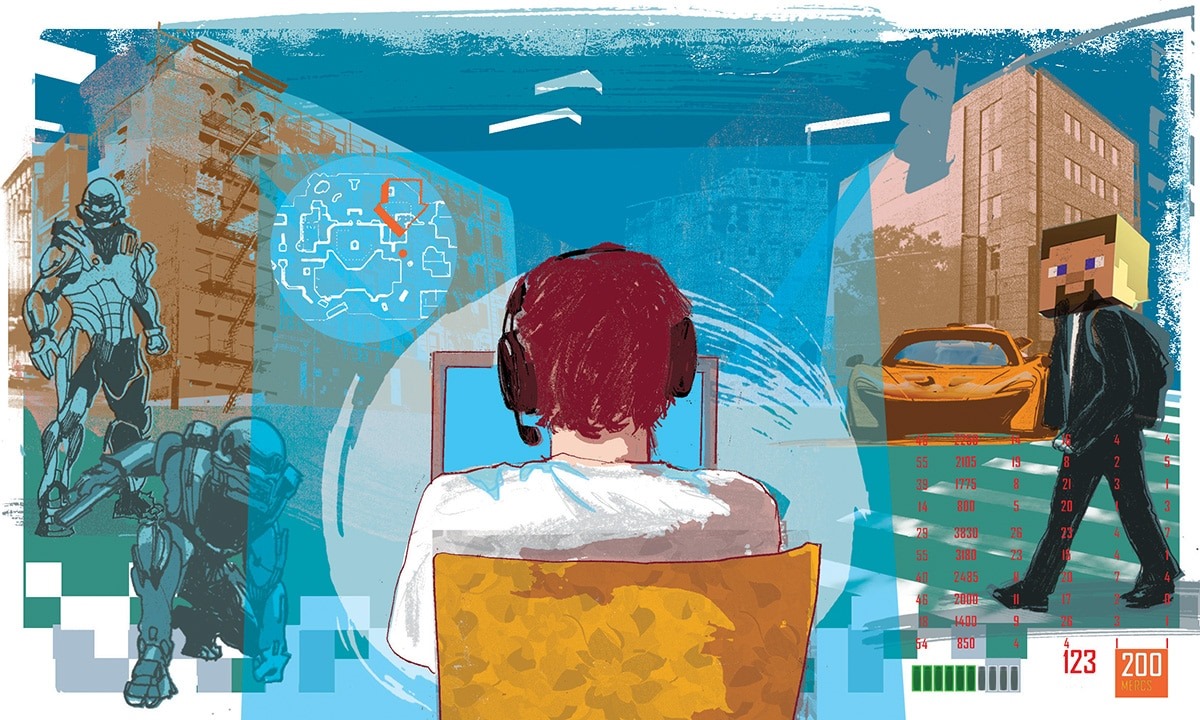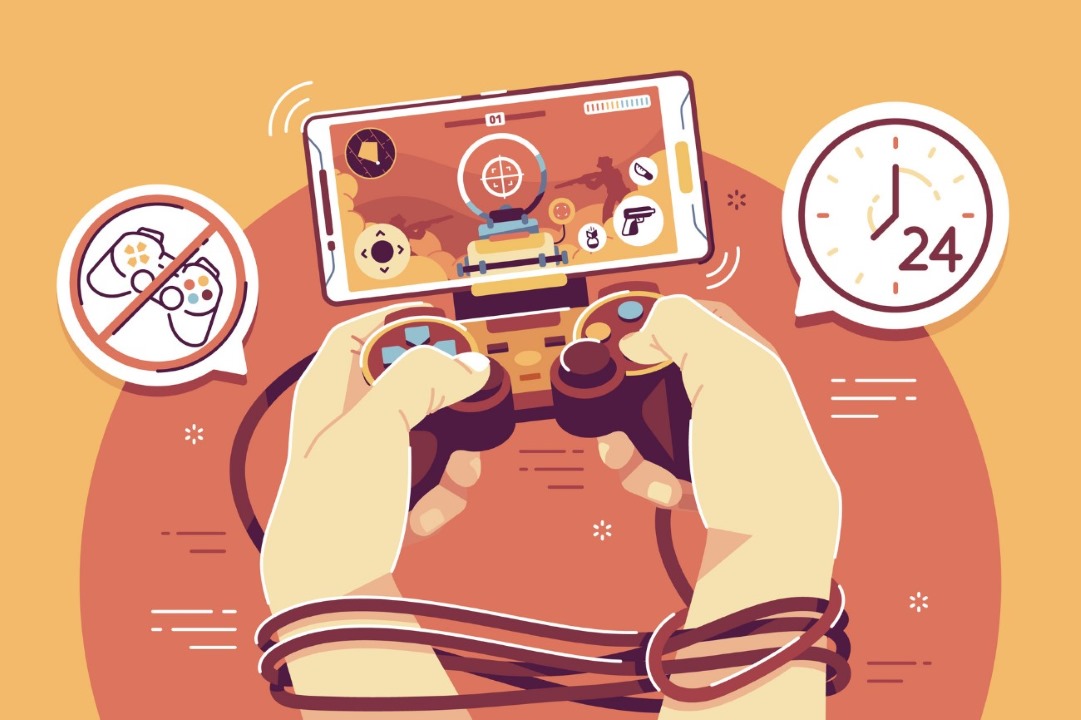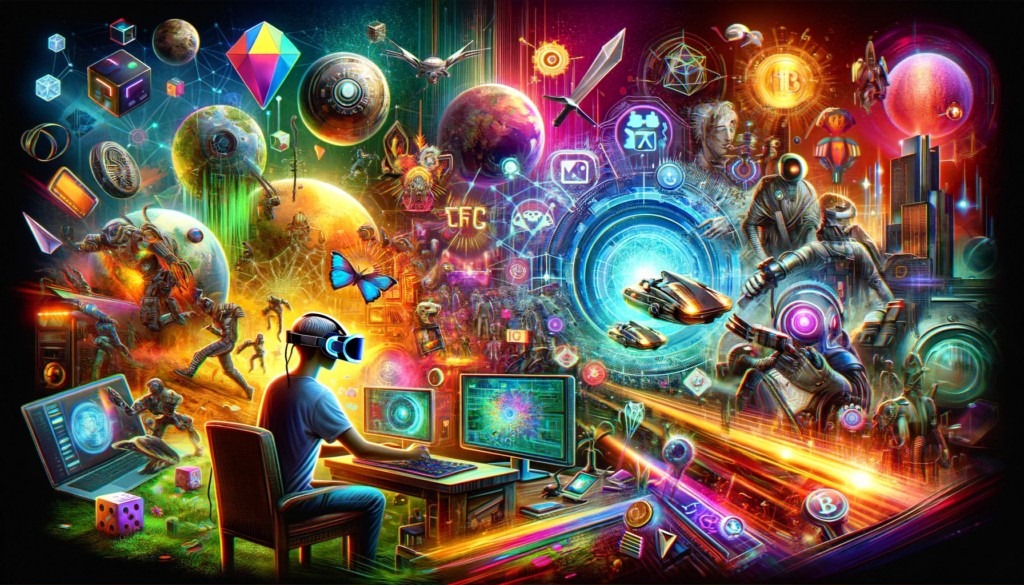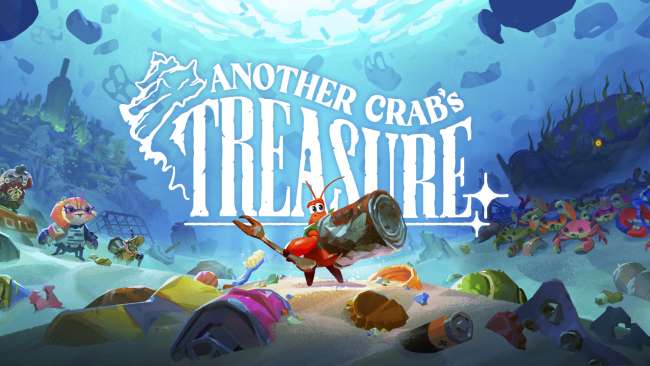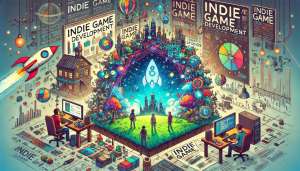Video games have evolved from a niche pastime into a multi-billion-dollar industry that captivates people of all ages worldwide. With gaming now a fundamental part of modern culture, it raises an important question: why are we so drawn to video games? While some may dismiss them as simple entertainment, the psychology behind gaming runs much deeper.
From a psychological perspective, gaming satisfies numerous intrinsic and extrinsic human needs, from achieving goals to forming social connections. They offer a safe space for escapism, cognitive stimulation, and even personal growth. Whether it’s the thrill of competition, the immersion in a virtual world, or the sheer joy of problem-solving, video games have a unique way of engaging the brain in ways that other forms of entertainment cannot.
By understanding the psychology behind why we play video games, we can gain insights into their benefits, potential drawbacks, and their impact on our daily lives. This article delves into the fundamental motivations behind gaming, the cognitive and emotional effects of playing, and how game design influences player behavior.
Intrinsic Motivations for Gaming
Achievement and Progression
One of the most common reasons people play video games is the sense of achievement they provide. The human brain thrives on progress, and video games are structured to offer a continuous sense of growth and accomplishment. Whether it’s leveling up in an RPG, unlocking new weapons in a shooter, or earning trophies in a strategy game, players experience gratification through tangible rewards.
Game designers use a technique called goal-setting theory, where players are given clear objectives that escalate in difficulty. Each time a player completes a mission or defeats a challenging boss, dopamine—the brain's reward chemical—is released, reinforcing positive feelings and encouraging continued play. This cycle of effort, reward, and progression keeps players engaged for hours.
Beyond virtual achievements, many gamers seek mastery. Titles like Dark Souls challenge players to refine their skills and adapt their strategies to overcome punishing obstacles. Mastery-oriented players often experience a state of flow, where they become deeply immersed in the game, losing track of time due to the intense engagement of their cognitive and motor skills.
For some, gaming achievements extend beyond personal satisfaction. Competitive players in games like League of Legends or Counter-Strike strive for recognition within their communities, proving their skill in ranked matches and esports tournaments. This social validation further reinforces the psychological appeal of gaming as a means of self-improvement and status-building.
Social Connection
While many view gaming as a solitary activity, it has increasingly become a social experience. Multiplayer games offer a space for connection, cooperation, and competition, fulfilling the human need for social interaction. Titles like Fortnite, World of Warcraft, and Among Us provide players with shared experiences that strengthen friendships and create lasting memories.
Psychologists often refer to self-determination theory, which explains how gaming satisfies three fundamental psychological needs: autonomy (freedom to make choices), competence (developing skills), and relatedness (forming social bonds). Multiplayer games fulfill the third need by allowing players to interact with others, whether through teamwork or friendly rivalry.
Some players find a sense of belonging in online communities, forming deep friendships with people they have never met in real life. Guilds, clans, and Discord servers become virtual spaces where players can communicate, strategize, and bond over their shared interests. For individuals who struggle with face-to-face interactions, gaming provides a social outlet that can be less intimidating than real-world interactions.
Interestingly, studies show that cooperative gameplay can strengthen real-life relationships. Games that require teamwork, such as Overcooked or Destiny 2, encourage players to communicate effectively, solve problems together, and build trust—skills that can translate into improved social interactions outside of gaming.
However, not all social interactions in gaming are positive. Toxicity in competitive games can lead to negative experiences, but many developers are implementing features like reporting systems and positive reinforcement mechanics to combat this issue. Despite these challenges, the social aspect of gaming remains one of the strongest reasons people continue to play.
Escapism and Stress Relief
In today’s fast-paced world, many turn to video games as a form of escapism. Games provide an opportunity to step into different roles, explore new worlds, and temporarily forget about real-life stressors.
Escapism in gaming comes in two forms: healthy escapism, which serves as a way to relax and recharge, and avoidant escapism, where gaming is used to escape responsibilities or suppress emotions. When used healthily, video games act as stress relievers, offering a controlled environment where players can decompress.
Games like Animal Crossing and Stardew Valley provide a sense of calm and routine, allowing players to immerse themselves in peaceful, low-stakes activities. Others find solace in open-world exploration, where vast digital landscapes offer freedom and adventure, as seen in The Legend of Zelda: Breath of the Wild or Elden Ring.
Furthermore, gaming can be therapeutic. Research has shown that engaging in immersive experiences can help alleviate symptoms of anxiety and depression. Some games, such as Celeste and Hellblade: Senua’s Sacrifice, explore mental health themes, providing players with a sense of understanding and emotional catharsis.
However, excessive escapism can become problematic when gaming is used to avoid responsibilities or social interactions entirely. Understanding the balance between using games for relaxation versus avoidance is essential for maintaining a healthy relationship with gaming.
Cognitive Benefits of Gaming
Enhancement of Problem-Solving Skills
Contrary to the stereotype that video games are mindless distractions, many games require high levels of critical thinking, logic, and strategy. Puzzle games like Portal, strategy games like Civilization, and role-playing games with branching storylines force players to think critically, weigh consequences, and make informed decisions.
Studies suggest that gamers often develop stronger problem-solving abilities due to the constant need to analyze situations and adjust strategies. These cognitive skills transfer to real-world applications, improving decision-making, adaptability, and even creativity.
Improvement in Attention and Concentration
Fast-paced action games can significantly enhance a player's attention span and focus. Games that require rapid decision-making, such as Call of Duty or DOOM Eternal, train the brain to process information more efficiently and react quickly to changing stimuli.
A study by the University of Rochester found that gamers who played fast-paced shooters exhibited better visual attention and enhanced tracking abilities compared to non-gamers. This suggests that playing certain types of games may sharpen a player's ability to focus on relevant details while filtering out distractions.
Development of Multitasking Abilities
Many modern games require players to juggle multiple objectives simultaneously. Whether managing resources in StarCraft, monitoring cooldown timers in League of Legends, or handling squad commands in Rainbow Six Siege, players develop strong multitasking skills through gameplay.
These skills are particularly beneficial in real-world scenarios, where multitasking is often necessary in workplaces, education, and day-to-day responsibilities. Gamers often exhibit better cognitive flexibility, allowing them to switch between tasks more efficiently than non-gamers.
Psychological Mechanisms in Game Design
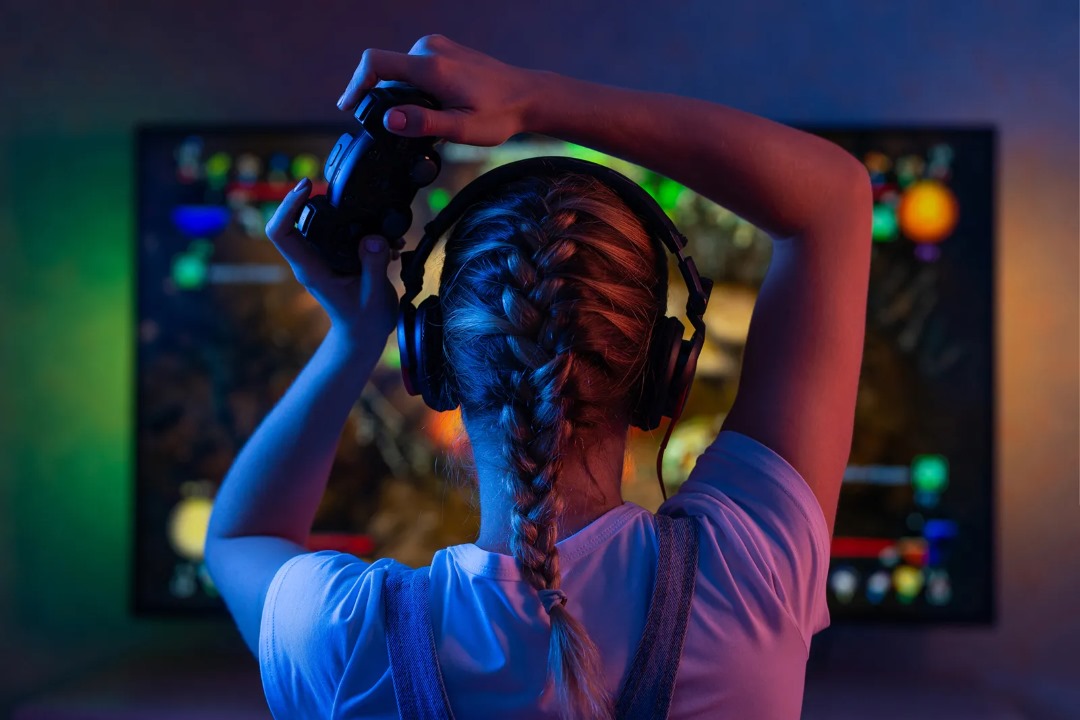
The Compulsion Loop
Game developers understand human psychology well, designing mechanics that keep players engaged for long periods. One of the most effective psychological tools in game design is the compulsion loop—a cycle of reward-based mechanics that keep players coming back for more.
This loop consists of three main steps:
- Challenge: The player is given a goal or task.
- Effort: The player engages in gameplay to achieve that goal.
- Reward: The player is rewarded with points, loot, progression, or in-game currency.
This cycle taps into the brain’s reward system by providing dopamine-driven motivation, which reinforces continued play. Games like Diablo, Destiny 2, and Genshin Impact use loot-based progression systems that make every session feel rewarding, enticing players to continue playing to achieve the next milestone.
Developers also use variable rewards, which means the player doesn’t always know what they will receive. This unpredictability, similar to a slot machine mechanism, can create a strong psychological pull. Gacha games and loot boxes in multiplayer shooters use this technique, encouraging players to keep playing (or spending money) in hopes of earning rare rewards.
While compulsion loops create engaging experiences, they can also lead to problematic gaming habits, where players feel compelled to play even when they no longer enjoy the game. Understanding how these mechanics work can help players make informed decisions about their gaming habits.
Flow State Induction
One of the most immersive experiences in gaming is achieving a flow state—a psychological condition where players become deeply absorbed in gameplay. Flow occurs when the difficulty of a task is perfectly balanced with the player’s skill level, creating a sense of effortless engagement.
Psychologist Mihály Csíkszentmihályi introduced the concept of flow, which explains why people lose track of time while performing enjoyable and challenging tasks. Games like Hollow Knight, Sekiro, and Tetris Effect induce flow by keeping players in a delicate balance of challenge and mastery.
The benefits of experiencing flow in video games include:
- Increased focus and concentration.
- Enhanced problem-solving skills.
- A feeling of accomplishment and self-improvement.
Many players seek this state because it provides a sense of control and mastery, making gaming a rewarding experience. Understanding flow can help developers create engaging games and help players identify which games provide the most fulfilling experiences.
Potential Negative Psychological Impacts

While video games have numerous benefits, excessive play or problematic behaviors can lead to negative consequences.
Gaming Addiction and Dependency
For a small percentage of players, video games can become addictive. The World Health Organization (WHO) has officially recognized gaming disorder as a condition characterized by:
- Loss of control over gaming habits.
- Prioritization of gaming over daily activities.
- Continuation of excessive gaming despite negative consequences.
The reward systems in games can create habit-forming behaviors, making it difficult for some individuals to stop playing. Certain genres, such as MMORPGs and live-service games, are particularly engaging due to their never-ending progression systems and social obligations within in-game communities.
However, it’s important to distinguish between healthy gaming enthusiasm and addiction. Many dedicated gamers play for long hours without it negatively impacting their daily lives. The key indicator of gaming addiction is whether it interferes with relationships, responsibilities, or mental well-being.
Desensitization to Violence
A long-standing debate in psychology revolves around violent video games and their impact on aggression. While some studies suggest that frequent exposure to violent content may reduce emotional sensitivity to violence, research remains inconclusive about whether video games lead to real-world aggression.
Games like Grand Theft Auto, Call of Duty, and Mortal Kombat often spark controversy due to their intense action and themes. However, studies show that most gamers can separate fantasy from reality, and the majority do not exhibit increased aggression from playing violent games.
Instead of focusing solely on violence, researchers suggest that competitive elements in games may contribute more to aggression than violent content itself. Games that involve high-pressure competition, such as battle royales or ranked matches, may trigger short-term frustration, similar to how athletes experience frustration in sports.
Social Isolation
While gaming can be a social activity, excessive play can sometimes replace real-world interactions, leading to social withdrawal. Some players become so engaged in online communities that they neglect face-to-face relationships.
Social isolation from gaming is often linked to avoidant coping behaviors, where individuals use video games as an escape from stress, anxiety, or depression. This can create a cycle where social anxiety prevents real-world interactions, reinforcing further isolation.
However, gaming is not inherently isolating. Many players maintain strong social ties through gaming, using voice chat, multiplayer teamwork, and online friendships to stay connected. The key is maintaining a healthy balance between online and offline interactions.
The Role of Individual Differences

Personality Traits and Gaming Preferences
Different personalities are drawn to different types of games. Research in gaming psychology suggests that personality traits influence gaming behavior:
- Highly competitive individuals gravitate toward FPS games like Call of Duty or MOBAs like League of Legends.
- Creative and exploratory personalities prefer sandbox games like Minecraft or RPGs like Skyrim.
- Introverted players may favor single-player experiences, while extroverts thrive in multiplayer and social games.
Age and Developmental Factors
Age also influences how and why people play games. Children often play for imagination and skill development, while adults may play for stress relief and nostalgia.
Studies suggest that young players benefit from cognitive skill development, while older players use games to maintain mental sharpness and social connections. Seniors who play video games show improved memory, reaction time, and cognitive flexibility compared to non-gamers.
Gender Differences in Gaming Behavior
Gender can also impact gaming preferences. While gaming was historically marketed toward males, female gamers now make up nearly 50% of the gaming population.
- Male gamers tend to prefer competitive, action-oriented games.
- Female gamers often engage with story-driven or cooperative games.
- Both genders enjoy a wide variety of genres, challenging outdated stereotypes about gaming preferences.
Understanding individual differences in gaming helps explain why video games appeal to such a broad audience across different demographics.
The Future of Gaming and Psychology
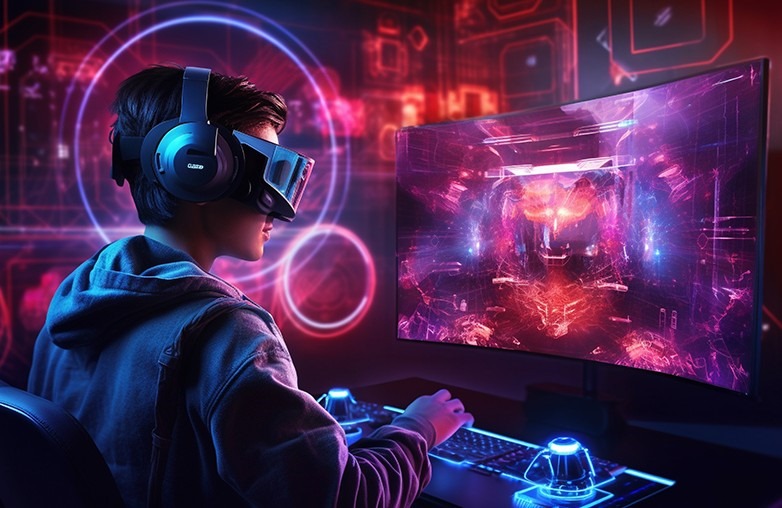
Emerging Trends in Game Design
With the rise of virtual reality (VR) and augmented reality (AR), gaming is evolving in ways that deeply engage the human brain. VR games create hyper-immersive experiences that can feel psychologically real, opening new possibilities for gaming’s impact on emotions and behavior.
Additionally, AI-driven game mechanics are being used to personalize experiences, adapting difficulty levels based on player psychology. Future games may learn from player behaviors, creating truly dynamic narratives and experiences.
Games as Tools for Mental Health
The potential for video games in mental health treatment is growing. Some games are being designed to help with anxiety, PTSD, and depression. VR therapy has shown promising results in treating phobias, while puzzle games like Tetris have been used to reduce PTSD symptoms.
Ethical Considerations
As gaming becomes more immersive, ethical questions arise about addiction prevention, data privacy, and psychological manipulation. Developers must balance engagement with responsible game design, ensuring that psychological mechanics are used ethically.
A Deep Connection Between Gaming and Psychology
Understanding the psychology behind video games helps explain why they resonate so deeply with players. Whether it’s achievement, social connection, cognitive stimulation, or escapism, gaming fulfills fundamental human needs.
While there are potential downsides, video games continue to offer meaningful experiences, bringing people together, improving cognitive skills, and providing emotional relief. As technology advances, the relationship between psychology and gaming will only grow stronger, shaping how future generations interact with digital worlds.


